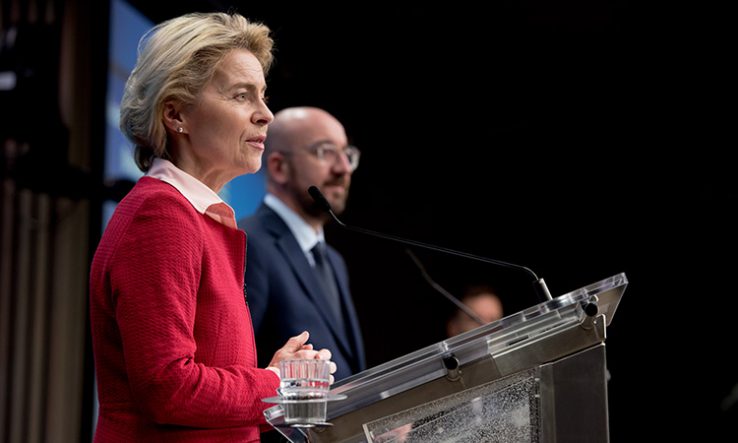
Image: Etienne Ansotte, European Union 2020
Bloc is a “fervent supporter of global cooperation”, insists Commission president
EU leaders have adopted a nuanced stance on the possibility of blocking Covid-19 vaccine exports, praising the bloc’s international disbursements but reserving the option to prevent them under certain circumstances.
Meeting virtually as the European Council on 25 March, heads of EU governments agreed on “the importance of transparency [around Covid-19 vaccine movements] as well as of the use of export authorisations”.
Exports from the EU of vaccines produced by companies with which the bloc has signed agreements to receive a certain number of doses for its own use must be authorised by member states and the European Commission, and so could be blocked. The Council agreement reiterates its endorsement of this approach.
But the Council also agreed on “the importance of global value chains”, in recognition of warnings from some of its member governments and the pharmaceutical industry that imposing blocks on exports could lead to retaliations from other countries that would be harmful all round.
The Council agreement came a day before the expansion of the criteria the EU will use when considering whether exports should be approved or blocked. Speaking after the meeting, Commission president Ursula von der Leyen (pictured, left) insisted the EU was “proud to be the home of vaccine producers who not only deliver to European citizens, but export around the globe”.
Von der Leyen said the EU would continue to be a “fervent supporter of global cooperation” on Covid-19. Council president Charles Michel (pictured, right) struck a similar note, saying the EU must “ensure open supply chains” and produce vaccines “to protect our people, and people around the world”.